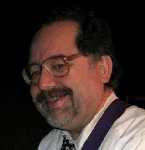Entering the grotto for the first series of readings presented a renewed perspective. If it were not for Guba, I would call this reading an exercise in philosophical overview. Since Guba is included, I consider the readings philosophical overview and a lesson on how to make vanilla pudding. But how did I come to this conclusion? Let me elucidate.
Both Crotty and Burrel-Morgan offer a scholarly synopsis of the varied horizons of social research. In both articles, the reader sees the relationship of ontology, epistemology, human nature, methods, and methodology as it relates to both research and the researcher. In contrast, Guba attempts to tell the reader how to make vanilla pudding or horse shoes. I can not really determine which, but whatever the case I am sure that Guba would consider my construction valid. Let me take a moment to muse on Guba, his religion (constructivism), and world view (relativism). I begin with last things first.
Guba declares himself a relativist almost as a sly turn of fate. You see, says Guba, we are all relativist by nature it's just that some are adverse to coming out of the closet and really declaring our preference for vanilla pudding. Now I admit, this statement is somewhat of a construction, but Guba would no doubt approve. The parts of Guba's article that trouble me are not that he fails to give a list of ingredients for vanilla pudding, but that he uses such definite or absolutist words in the process. For instance, Guba uses the definite article at least six times in the first paragraph. A relativist should consider the definite article and all of its kinfolk off limits. The reason being, well, its just too absolutists. The second foible that appears early on in the article is the use of "every" as in everyday. This is a definite no-no for a relativist. It has the smell of positivism all over it, nasty stuff it is. But the last error to appear in the first paragraph of Guba, but by no means the least, is his use of quantitative methods, numbers, and math. This is a clear sign of positivism on the one hand, and an indication that Guba has fallen off the wagon in full view of his readers: "[Kuhn] ... has used the term no fewer than 21 different ways." Now I would affirm that such blatant used of math has no place in vanilla pudding.
In the second place, Guba wears his religion on his sleeve. It is not enough that he denotes a paradigm as a "basic set of beliefs that guides actions," but he initiates credo ("I believe it is important to leave the term ... in limbo" p. 17) before he concludes with the facts. Now vanilla pudding looks and smells more like theology, with creed, a place in the after life (limbo), and moral instruction ("guides action"). It was the opinion of the early positivist Comte that man evolves through three levels of consciousness: theology, metaphysics, and science (positivism). It seems that Guba is attempting the first level, though with some difficulty and contradictions. At least in the end, Comte admitted that positivism was a religion. Guba does not promote the same authenticity with constructivism.
Finally, I have a few closing remarks on baptism. While studying Guba's discourse on vanilla pudding, I ran across a little aphorism. It seems that Guba was hired for a position with a six figure salary. When he presented himself for his payment for services rendered at the end of the year, he was given a bag of apples and $6.
Though appearing somewhat down cast, Guba responded to the lady at payroll in true constructivist fashion. "Ms. Fancy, I can understand why you gave me six one-dollar bills. I did sign a contract for six-figures and that could be constructed as six bills of any denomination, though I could have sworn that it was $600K. That must have just been my construction. But what I can not understand is the bag of apples. I can not seem to make a meaning of the fruit."
Ms. Fancy responded in pure positivist precision: "Make Apple butter."
I will leave it to the class to draw their own conclusions.
des
Tuesday, September 2, 2008
Subscribe to:
Post Comments (Atom)

2 comments:
Maybe I should skip the reading and just read Dave's blog. I think I'd understand more.
Dave,
Brilliant! A very careful and enjoyable critique of Guba. You've got a great mix of analysis and humor.
I look forward to seeing more throughout the semester. You're a great resource for advancing our learning in the course.
Vachel
Post a Comment